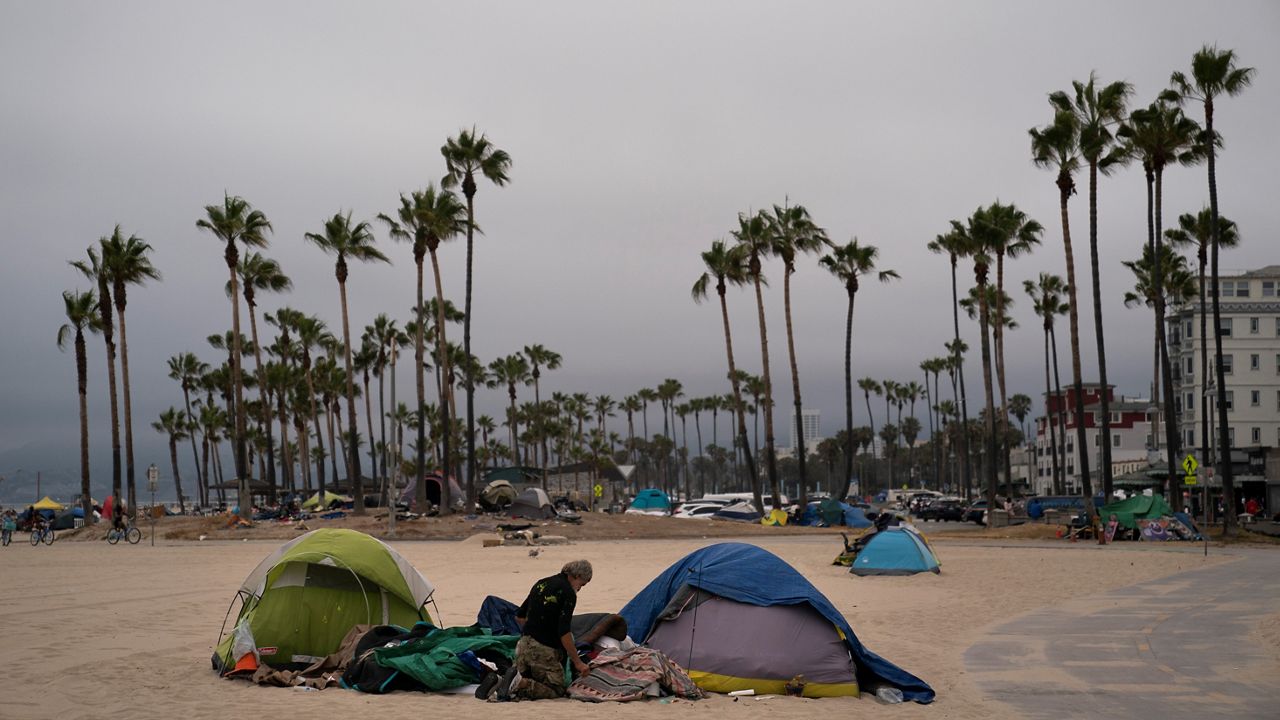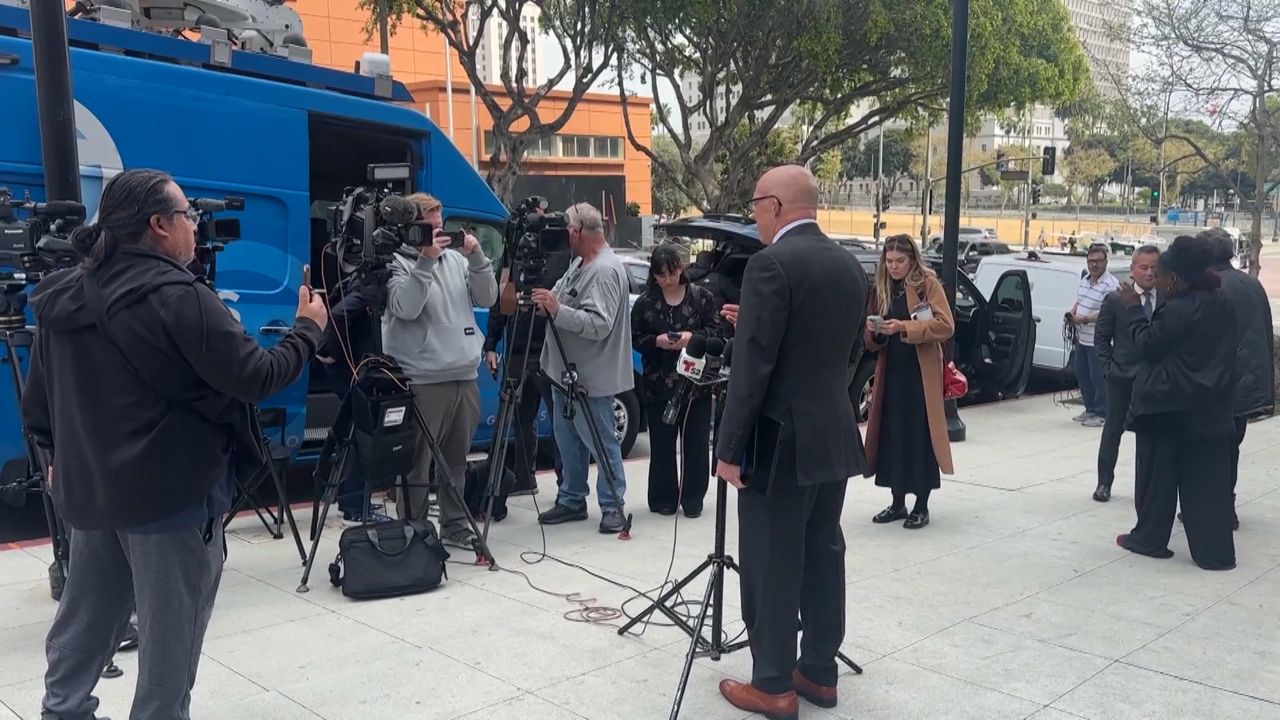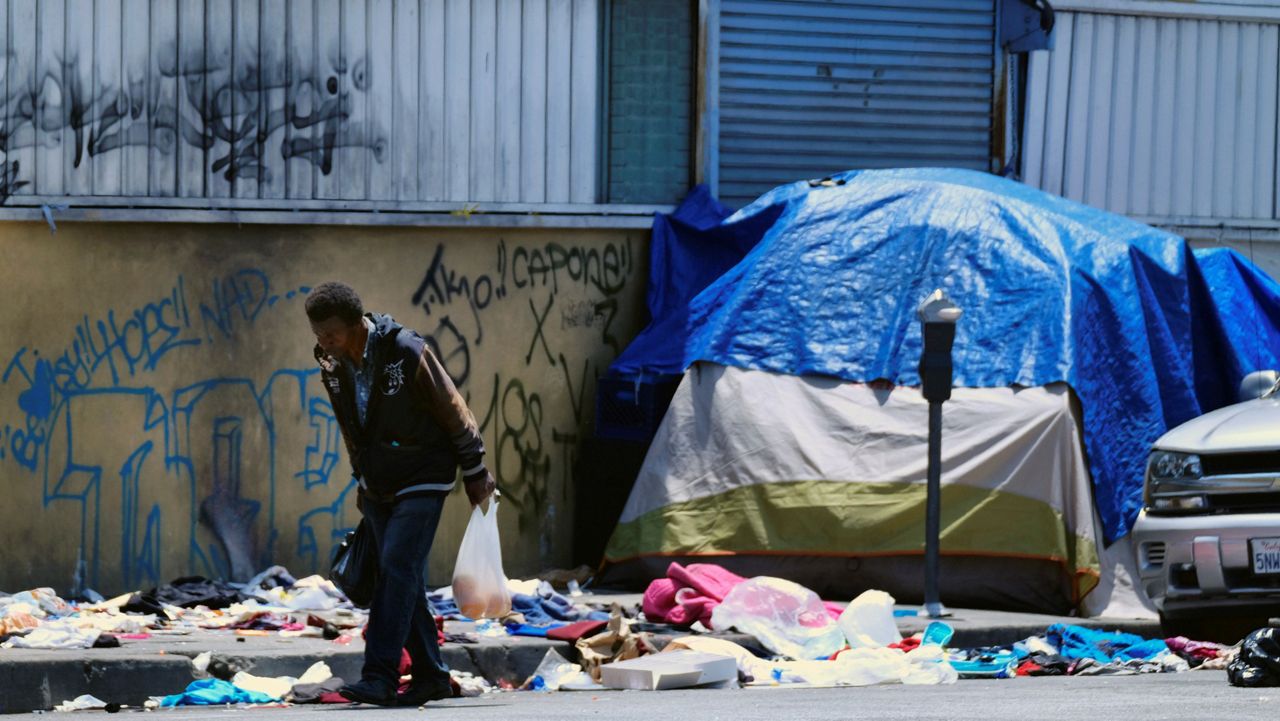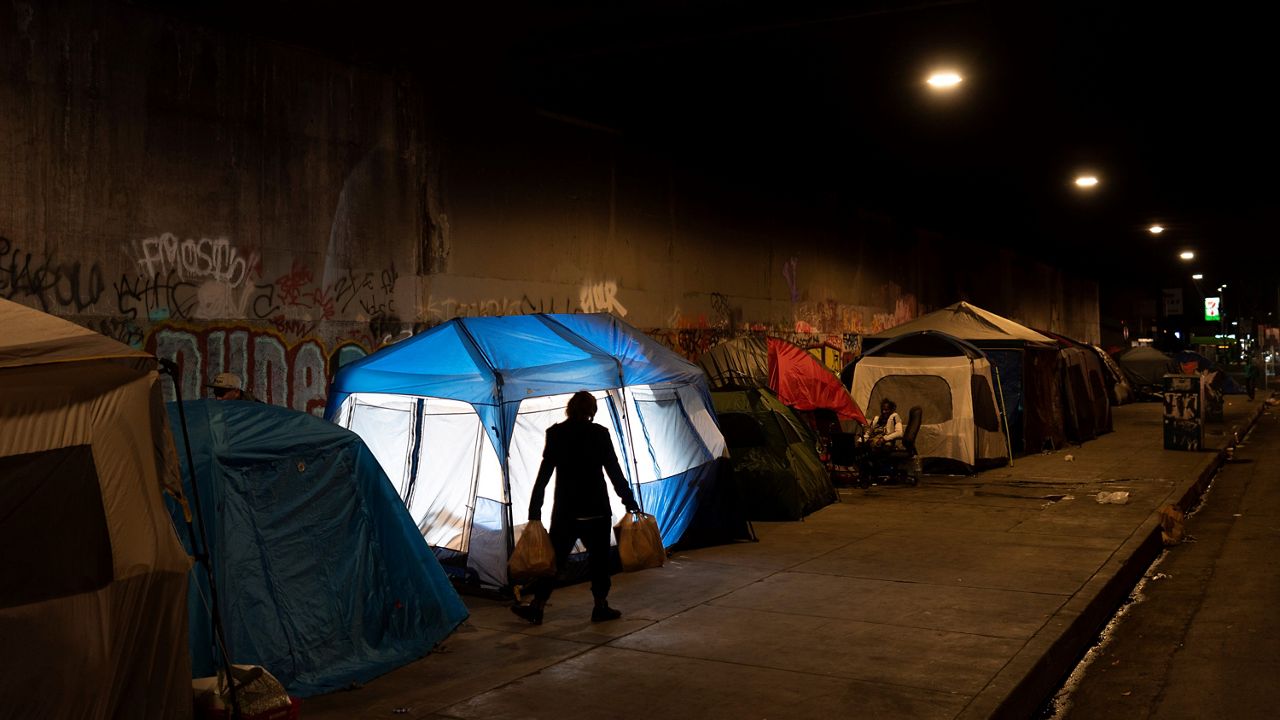People experiencing homelessness in California are more likely to be burdened with high housing costs, mental health problems and addiction issues, according to a new statewide study from the University of California, San Francisco.
Released Tuesday, the UCSF Benioff Homelessness and Housing Initiative is the largest analysis of its kind in the country to look at the causes and consequences of homelessness and suggest effective policies to address a growing epidemic.
Almost a third of the country’s unsheltered population lives in California. More than 171,000 people in the state experience homelessness daily, according to the report, which was conducted with 3,200 adults experiencing homelessness through a mix of surveys and in-depth interviews.
The study found that people experiencing homelessness had higher rates of mental health conditions and substance use than the general population. Eighty-two percent of those surveyed reported having experienced a serious mental health condition at some period in their lives, for which more than a quarter had been hospitalized. Of those who were hospitalized for a mental health condition, more than half occurred before they became homeless.
After becoming homeless, many of the survey participants said the stresses of life on the street had exacerbated their mental health symptoms. Almost half reported serious depression (48%) and anxiety (51%), and many reported trouble concentrating (37%) and hallucinations (12%). Few received treatment, however. Just 9% reported receiving mental health counseling and 14% were on mental health medications.
Almost two-thirds of those surveyed reported regularly using illicit drugs or drinking heavily at some point in their lives. Of those, about half received treatment for their addiction before becoming homeless. After losing their housing, many turned to drugs and alcohol to help them cope with their circumstances, the report found.
Almost one-third of those experiencing homelessness regularly use methamphetamines, 11% use non-prescribed opioids and 16% reported heavy drinking. About 20% of individuals who regularly use illicit drugs or drink heavily said they wanted treatment but were unable to receive it.
The study found that a combination of high housing costs and low income made people more vulnerable to becoming homeless. Of those surveyed, 49% came from a housing situation where their name was not on a lease or mortgage and were given a median of one day’s notice to leave. For the 32% of homeless individuals who came from a housing situation where their name was on a lease or mortgage, they were given a median of 10 days’ notice they were going to lose their housing.
More than half of non-leaseholders who paid rent spent more than 30% of their income on housing before becoming homeless. While leaseholders had higher incomes, they had even higher housing costs. Of those who paid rent, 66% were rent burdened, spending more than 30% of their incomes on housing.
The average monthly rent for an apartment in California is $1,750, according to the apartment listings website RentCafe, while the average monthly income in California is $5,106, according to ZipRecruiter. Most of the homeless individuals in the UCSF survey, however, made substantially less in the six months prior to losing their housing. Their median monthly income was $950 for non-leaseholders and $1,400 for those whose names were on a lease or mortgage.
Seventy percent of people experiencing homelessness said a monthly rental subsidy of $300 to $500 would have prevented them from being homeless for a prolonged period. Even more (82%) said receiving a onetime payment of $5,000 to $10,000 or a housing voucher (90%) would have prevented it.
Once homeless, high housing costs were the primary barrier to returning to a life with shelter. Almost 90% of people experiencing homelessness wanted to obtain housing but were unable to.










